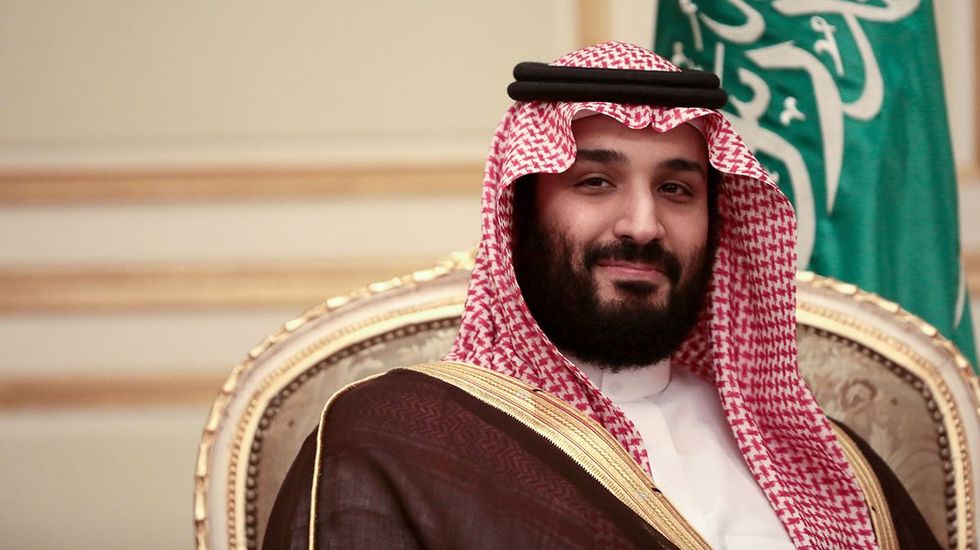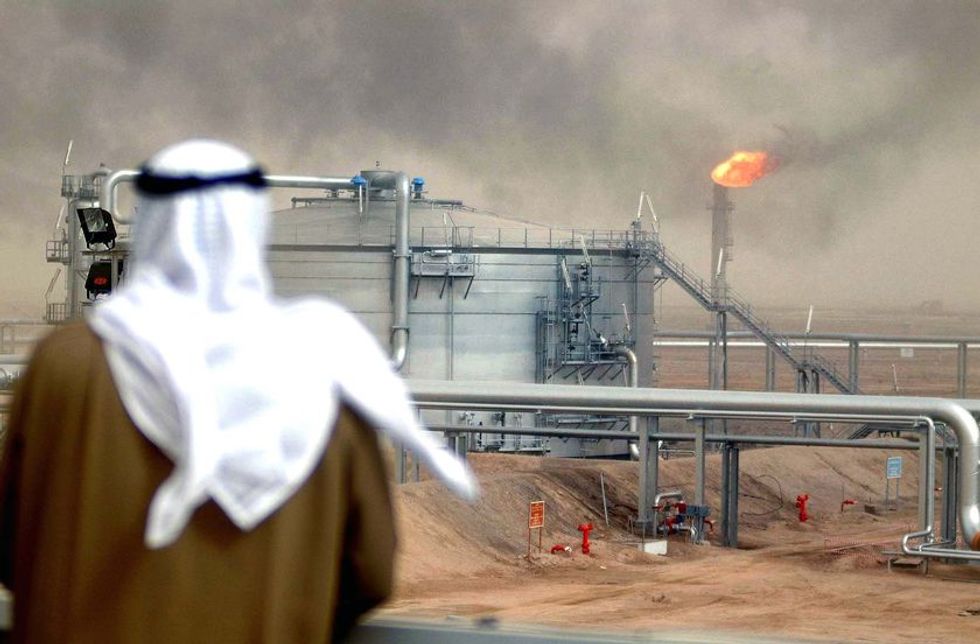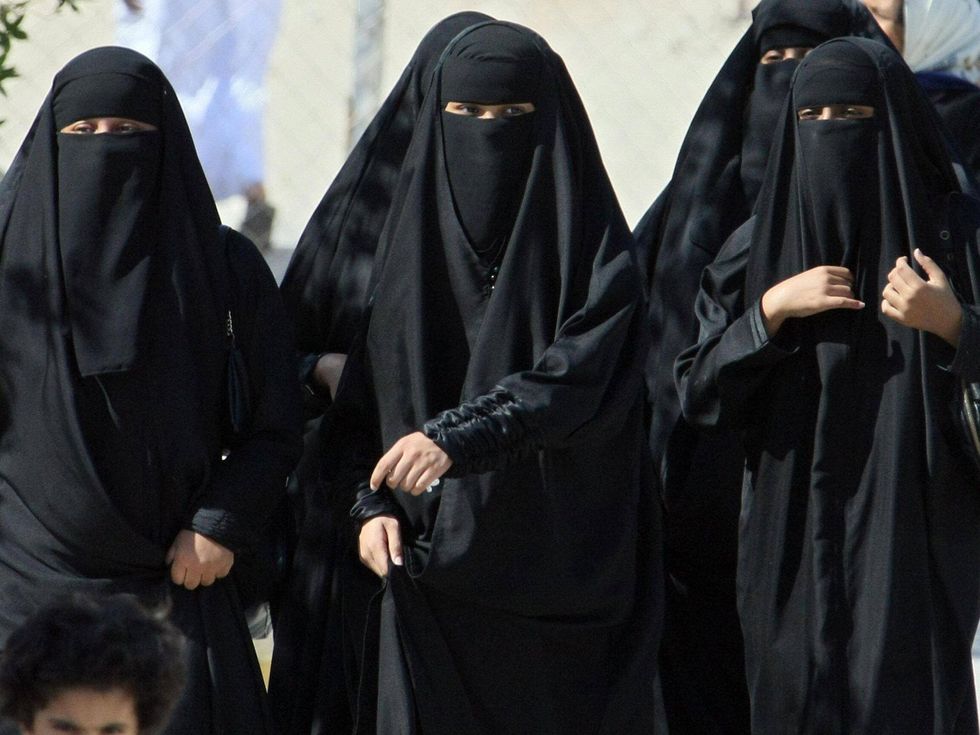Last weekend, citizens of the Kingdom of Saudi Arabia and people across the globe were shocked by the announcement that dozens of top members of the Saudi Arabian government and business world were arrested on charges of corruption. Titans of Saudi Arabia, from the head of the National Guard, Prince Miteb bin Abdullan to billionaire and forty fifth richest man in the world, Prince Alwaleed bin Talal have been detained. Hundreds have now been arrested across the Kingdom, with no end in sight for the investigations. The orchestrator of this campaign, Crown Prince Mohammad Bin Salman, has been willing to imprison his own relatives, which has made the next family reunion quite awkward. This heir to the Saudi throne, First Deputy Prime Minister, and Defense Minister is only thirty two years old, but has already made his power clear. Many analysts maintain that this is clearly a move to consolidate his power and fend off rivals. He may not be King yet, but Mohammed Bin Salman (or MBS) is already exerting influence.
Oil and gas account for nearly 50% of Saudi Arabia’s GDP and 90% of its export earnings. For decades, Saudi Arabia has been reliant on a single industry and has maintained relative prosperity. We have seen the negative impact though of countries or areas that are reliant on a single sector of the world economy. Venezuela is currently suffering from both international sanctions on its exports and the global decrease in the price of oil. Cities in America like Flint and Detroit have been left behind and decimated as the auto industry automated jobs and moved to other locations, taking with it a large sector of the city’s formerly prosperous economy.
Saudi Arabia’s economy has suffered somewhat from the fluctuation of global oil prices, but stability has relatively been maintained. In the long term, reliance on a single industry is unhealthy for the economy. Mohammad Bin Salman has been pursuing policies to diversify the country’s economy and reduce its dependence on the oil and gas industries. MBS has put forth a blueprint, and already begun implementation, of a plan to restructure the Saudi economy. This massive overhaul includes selling shares in the state-owned oil company and the privatization of some government services. Through both government spending and private investment, MBS wants to create jobs and reduce their 11.6% unemployment rate. In an attempt to entice foreign businesses, investment zones have been announced across the country where many regulations are curtailed. The centerpiece of this bold vision is the construction of a $500 billion city called Neom. MBS envisions Neom attracting all facets of the business world, from manufacturing to media. The behemoth future metropolis, thirty three times the size of New York City, is planned to run on renewable energy in an oil rich country. While reforms have been attempted in the past, Bin Salman is ensuring that the plans are more centralized and have financial support unlike before.
If the first thing that comes to the mind of Westerners when they think of Saudi Arabia is oil, a close second has to be the repressive government’s treatment of women and dissidents. In the Kingdom of Saudi Arabia, women cannot leave their homes without a man’s permission, they possess very few opportunities to hold a job, and are unable to dress as they wish. The government has been ranked 159 out of 167 nations on the Democracy Index. It is one of the few absolute monarchies left in the world, silencing any political dissident. The affection for authoritarianism and an ultra-conservative interpretation of Islam has blended together to produce devastating effects. The official state religion of Saudi Arabia is Sunni Islam, but has a strong influence from Wahhabism, a fundamentalist and ultra-conservative interpretation of Islam. Wahhabism has been another top export of Saudi Arabia, inspiring extremists from Al-Qaeda to ISIS. Wealthy benefactors have funneled money to many terrorist organizations and numerous citizens have left their country to join those organizations. The government imposes a strict form of Shariah Law on its citizens and bans the worship of other religions, the ability to protest, movie theaters, and alcohol. Citizens can be sentenced to death by public beheading and crucifixion to discourage dissent.
It is unlikely that Mohammad Bin Salman will lessen the control in certain respects that the government wields over its subjects, but all hope is not lost. In an October 2017 interview with the Guardian, MBS promised to return his country to “moderate Islam.” He theorized that the Kingdom had acted “not normal” through rigid codes of conduct put into place in reaction to the Iranian Revolution, which instituted similar restrictions on Iranian citizens. Leaders since, MBS maintained, “didn’t know how to deal with.” Incremental progress has already been achieved with recent announcements that women would be able to drive next year and be allowed into sports stadiums, but clearly much more has to be done. While Mohammad Bin Salman’s role in recent crackdowns on corruption in the government may be Machiavellian in nature by consolidating power, an earnest belief in reform may also be an influence. Many members of the royal family facilitate less than savory business deals and flagrantly violate the country’s most stringent laws on personal contact. If he curtains the most extremist views that proliferate within the borders of Saudi Arabia, MBS can likely further open a nation which bans citizenship to non-Muslims to the global community.
Since 2015, Saudi Arabia has led a coalition of nations intervening on behalf of the Yemeni government of President Abdrabbuh Mansur Hadi. The nation has been destabilized by the civil war erupting and has caused the death and displacement of tens of thousands of Yemenis. This conflict has essentially become a proxy war between the government backed by the Saudis and the rebels supported by Iran. The Saudi and Iranian struggle for regional dominance has left innocent civilians and a formerly sovereign state severely damaged.
In June of 2017, several Middle Eastern nations led by Saudi Arabia cut off diplomatic relations and imposed an embargo on the State of Qatar. They put forth an ultimatum of demands for a restoration of diplomatic relations and the lifting of the embargo. The list of demands included the closing of Al-Jazeera (the news organization frequently runs stories critical of the Kingdom), a reduction of relations with Iran (Saudi Arabia’s greatest regional enemy), and the “severing of ties with terrorist, ideological, and sectarian organizations” (many listed held negative views of the Saudis). The diplomatic crisis has not yet been resolved.
These bold foreign policy ventures bear the fingerprints of Mohammad Bin Salman. MBS in not only trying to cement his nation’s dominance in the region, but expand it as well. He is spreading Saudi Arabia’s influence and is focusing on minimizing Iran’s. In a recent interview with Reuters, MBS called the embargo on Qatar a “very, very, very small issue,” but has been active in masterminding actions against Qatar behind the scenes. He also defended his country’s role in the Yemen Civil War, “We’re pursuing (the Yemen War) until we can be sure that nothing will happen there like Hezbollah again. Yemen is more dangerous than Lebanon.” MBS has shown that he is unafraid to pursue what he believes is in his country’s best interest, regardless of casualties.
Crown Prince Mohammad Bin Salman would not be legally old enough to be President of the United States, but has already begun crafting the country he will one day rule in his vision. He became Crown Prince by usurping his much older cousin out of the position and is in the midst of arresting corrupt officials who may challenge his consolidation of power. His father, King Salman is eighty one and has given his blessing to reforms in the making. A diversified and strengthened economy and the embrace of a more moderate interpretation of the country’s state religion can be his legacy, but it appears that continued suppression of dissent and a bloody exertion of military power will be his legacy as well. The recent corruption charges will likely not cease and MBS will continue to increase his power. How he is remembered decades from now, as a reformer, tyrant, or hybrid of both, rests solely in his hands.



















